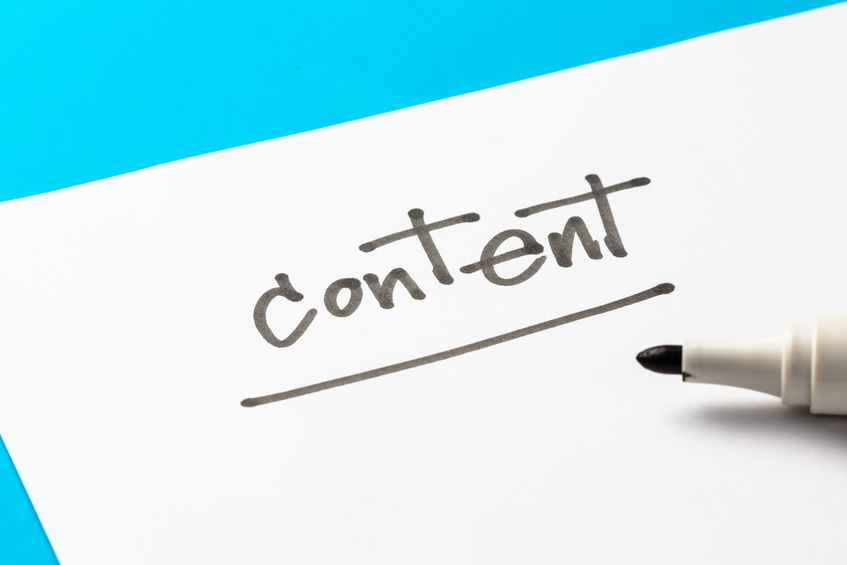After you have reviewed the questions to prepare yourself for the meeting, the next step is to actually set up interviews with web designers (How exciting!!). Having well thought out questions to ask your chosen designers is essential and saves both you and the designer time.
A couple of hints about the meeting –
- Your designer is interested in finding out the functionality of your website – not what color blue you are using. Now is not the time to get bogged down in colors and decorations.
- If you don’t understand the techno jargon – be sure to stop and ask what they are referring to. If you are comparing several website designers, you want to make sure you are all on the same page with the technical definitions. Once you start looking at proposals, this will all be greek again!
Here are some important questions you should ask when interviewing web designers:
What services do you offer?
It is good to know the full range of services a web designer offers before you hire them. Even if you see their services listed on their website, it is still worth asking the question.
Can you show me a website that is relevant to my project? Can you walk me through the process you used to design this site?
PORTFOLIOS. PORTFOLIOS. PORTFOLIOS. These are extremely helpful when choosing a web designer. But beware, they can become outdated as a designer completes projects. Make sure you ask to see recent work.
Dig deeper than just appearances in order to better understand their approach. Some questions to ask may be:
- What problems did you solve?
- Why did you choose a specific solution?
- What process did you follow?
- What were the goals for the site?
- Did you meet those goals?
- Can I contact your client for a reference?
What are your qualifications?
Many web professionals are self-taught, and there is nothing wrong with that! This especially true when you think about the wide range of free and paid learning resource for web design, development, SEO, marketing, and more. Some web designers go the extra mile to complete certifications to better position themselves in the marketplace. They often charge higher rates, so be careful that you get what you pay for.
Will you provide a detailed proposal?
A detailed proposal from your web designer can help you better understand every service they offer and how much it will cost. Great proposals are based on a good grasp of your business and your customers. Be sure to ask any clarifying questions you have about the proposal. This will minimize the risk of bad surprises later down the road.
How long will the website take to complete?
Any website proposal you receive should include a time estimate for completion. It takes time to develop a quality website and busy designers often have other clients. As requirements change, so does web design timelines. This means that your completion date may be pushed back. It is important to have a clear picture of what you want to accomplish.
Your website will never be fully “completed.” After the launch, adjustments will be made based on how many people visit the site, how many come back, how many subscribe, etc. Rushing this process will not help. For a successful outcome, make sure to get involved as much as you feel comfortable.
What does the process look like?
Most website designers have a process they follow – one that streamlines communication and makes it easy for you – the client – to communicate back and forth. Managing expectations on both sides is not always an easy task. Make sure to ask what happens if deadlines should be missed – on either side – and how will they get the project back on track.
Will I be able to expand my website as my business grows?
If you plan on expanding your website as your business grows, make sure to consider that before creating your website. A full redesign might be required to add new functionality to the website. Make sure you can add new features to your site as needed. Another important factor to take into consideration relates to your hosting your website. Make sure your website can be scaled to handle larger volumes of traffic as needed.
Which content management system do you use?
Most websites are built using a CMS that separates the backend code from content and design. This will let you update your content without learning any complex web code. Not all of these platforms are created equal. Ask to see a demo of the system and make sure your web designer uses a platform that shows no signs of disappearing overnight – WordPress, Drupal, Joomla are all reliable systems.
Will my team be able to access and edit the website after it is published?
You want to make sure you can make changes to your site. Strictly relying on the designer to update content may cause delays when you need fast changes. Make sure to ask if making changes will be possible after publication.
Do you offer ongoing maintenance? What is something goes wrong?
Software is always updating. It is important to ask what kind of maintenance is required and what options your web designer provides. Although many content management systems are integrated with specialized hosting environments, some things can still go wrong. In these cases, make sure to ask how much it will cost to fix, and how long will their support be available?
How much will it all cost??
This is one of the most crucial questions for your business. Pricing is based on may factors and each web designer prices their services differently. Since web designing is a relatively new industry, there are few pricing standards. Contract, hourly, and fixed rates are all common. Plan to budget a few thousand dollars for a custom website with basic functionality. A professional quality website will cost more than if you had your friend throw together a site for a bargain price.
Will I own my website, assets, domain?
Another concern is the copyright or legal ownership of the website and all its components. You will want to have a contract in place that clearly and distinctly outlines the ownership of your website. Not having a contract to protect your business leaves your site unprotected ad is not worth the risk. Also, if your designer is working off a ‘rent a site” such as Wix or Shopify, you will not own your assets – another reason to be clear of the platform the designer will be using.
What work do I need to supply?
Figuring out what you need to bring to the table will help you avoid delays down the line. It is crucial that you have an understanding of what contentor assets you need to provide.
This may include:
- Copy
- Images
- Logos
- Videos
- Login credentials
- Premium themes and plugins
Overall, the design of a website is a massive project that needs your input.
Final Words of Advice for Hiring a Web Designer
Each of these questions will help you identify and hire the best web designer for you and your business. However, they are only human. Unfortunately, there is no bulletproof way of knowing how you will work together. Make sure the relationship works for both parties.
Make sure they understand YOUR business! Experience website designers can get to the heart of your business and know the questions to ask. Gauge the questions they are asking you… you can generally tell when someone has an understanding of your business type and industry.
Communication is key!! Do not hesitate to ask questions. If you feel like it is not the right fit, move on until you find the right web professional for the job. You and the website designer will be working very closely together and you want this to be a great process. So does your website designer!
Once you are confident in your decision, let the designer know you are ready to proceed! And… have fun with the process! Generally speaking, a company or business owner that goes through a website process generally strengthens their business internally as well as externally!






